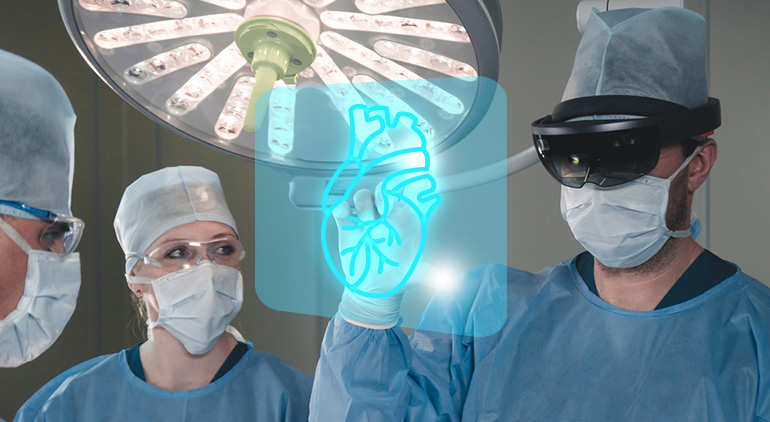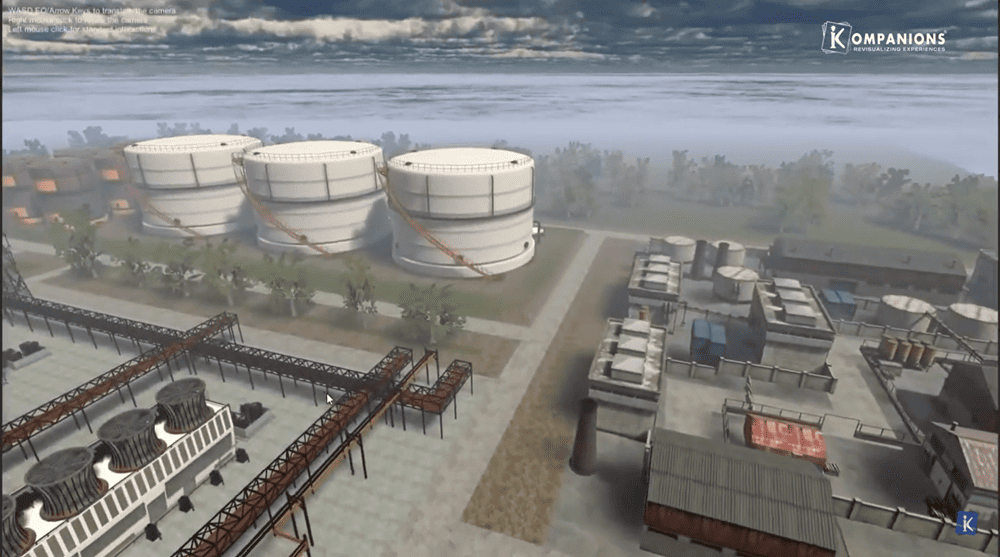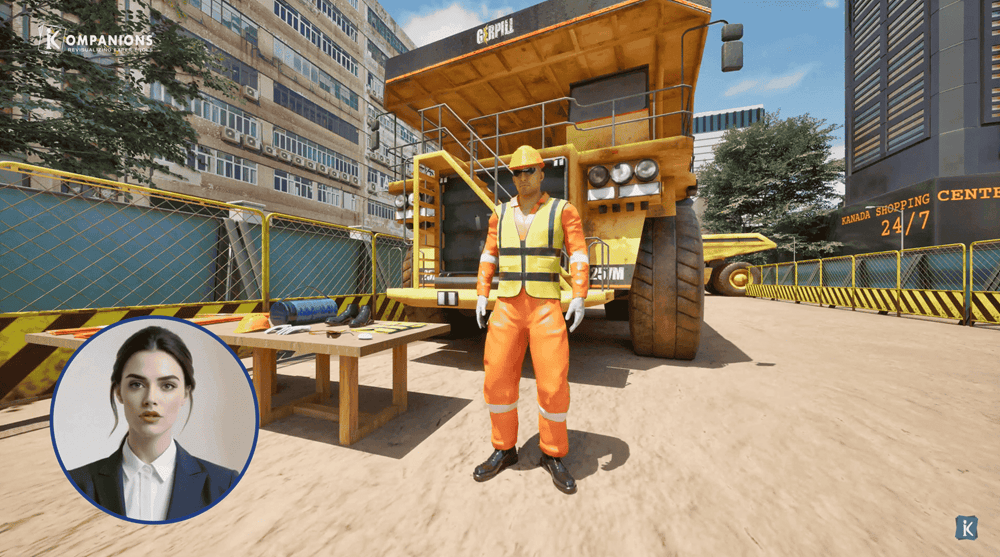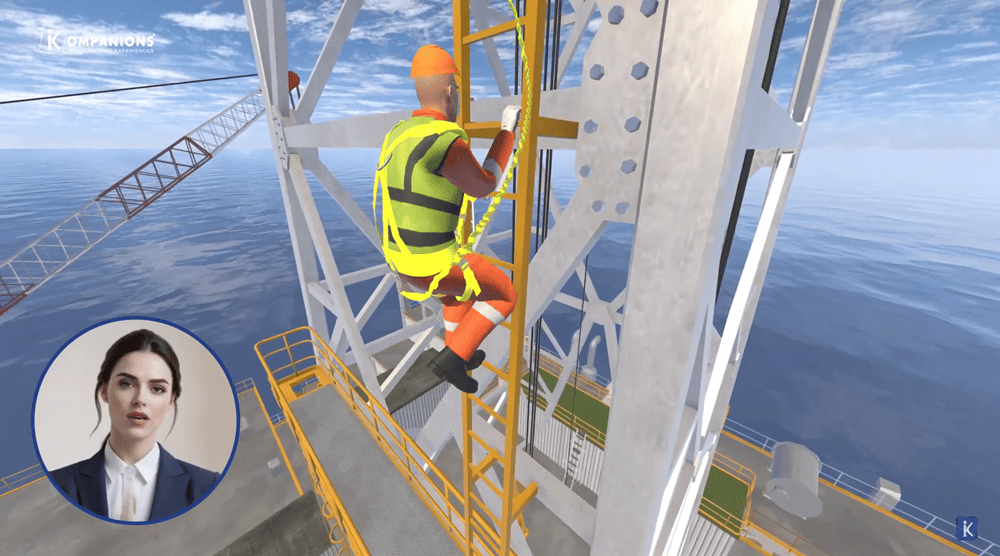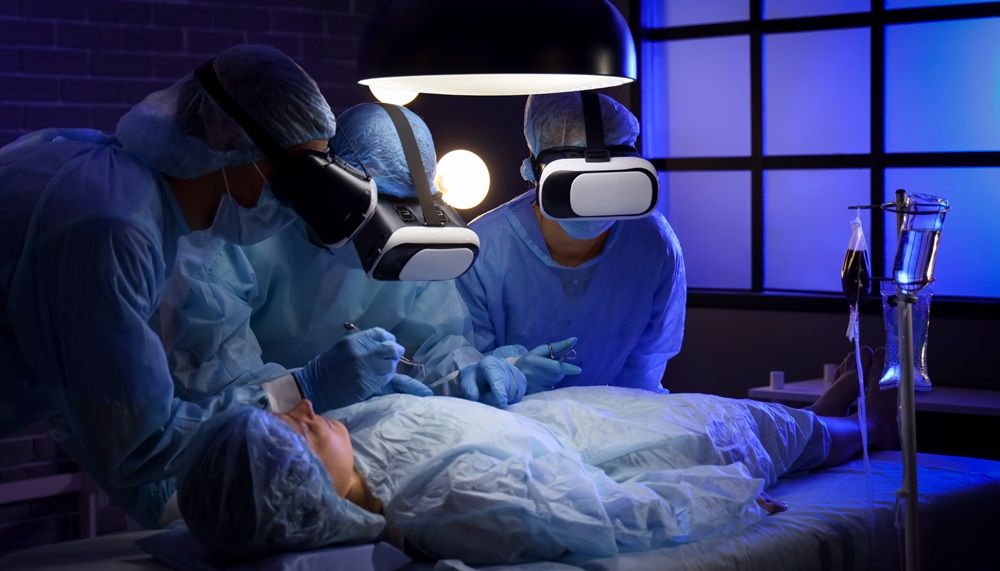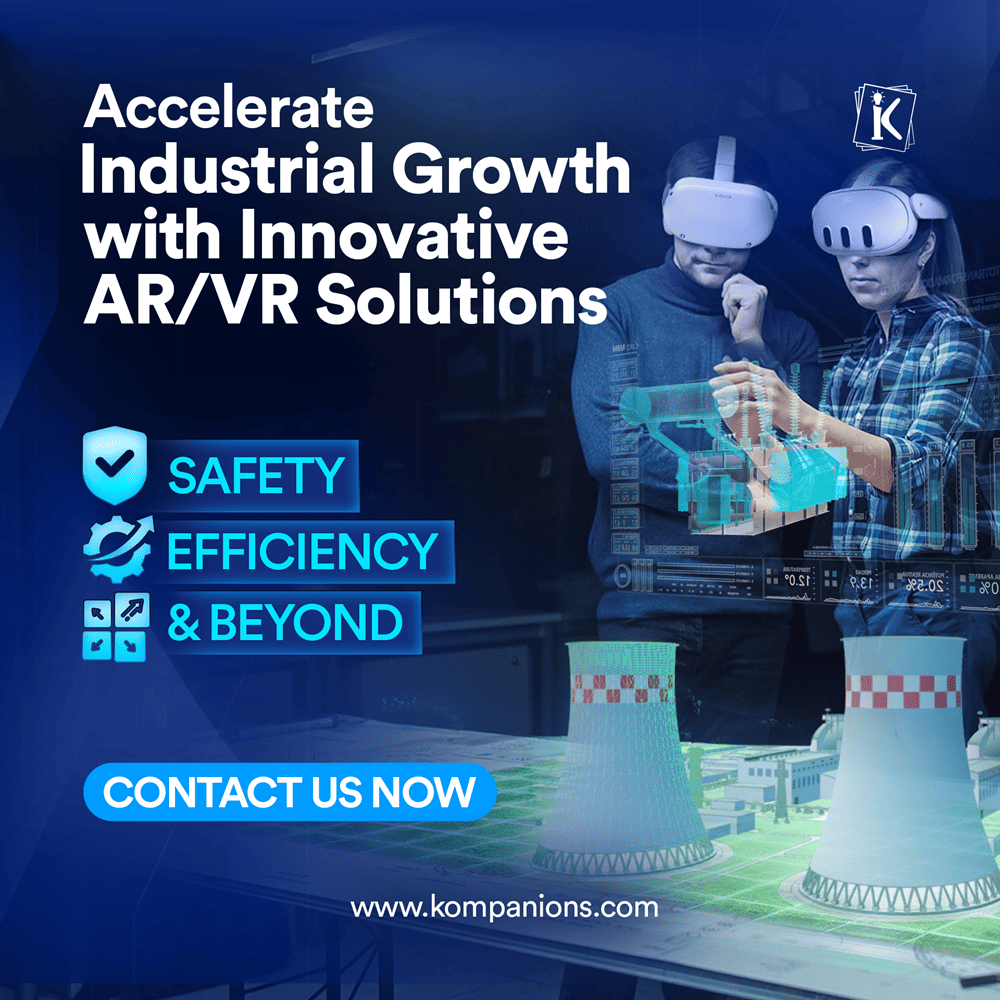Augmented Reality in the Pharma Industry
The pandemic has accelerated the rapid adoption of innovative technologies across various business sectors, fundamentally reshaping how industries operate and adapt to challenges.
The pharmaceutical industry, in particular, has leveraged augmented reality (AR) medical technology to enhance and transform traditional healthcare practices.
By integrating AR, pharmaceutical companies can create more interactive, precise, and efficient healthcare ecosystems. This technology helps professionals visualize complex data, streamline training, improve drug detailing, and enhance patient engagement through immersive experiences.
Such advancements have not only driven better decision-making but also paved the way for smarter, data-driven healthcare solutions.
New Dynamics with AR Technology in Pharma
- As per the IQVIA report, global spending on medicine is expected to touch $2.3 trillion through 2028, the sector will turn towards technology-enabled processes to match the growing requirements.
Experts cite industry statistics on the ever-increasing consumption of AR-related investments in business, which is projected to increase to 80% from around 60% currently in the next few years.
AR in pharma seamlessly removes the paper-to-digital divide and enables business processes from R&D to production, training, and the final rollout for commercial production.
AR Detailing of Complex Concepts in the Pharmaceutical Industry
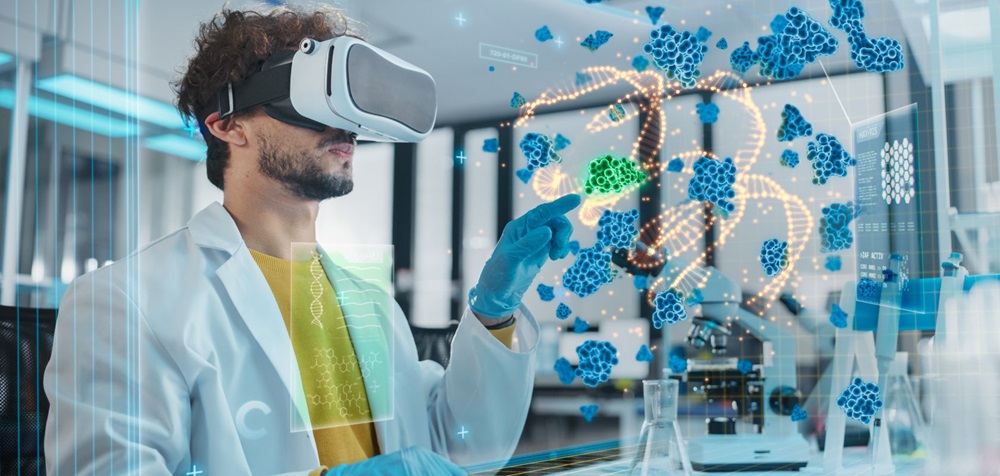
AR in life sciences provides robust and enhanced demonstrations, especially in understanding complex medical theories. Research shows that AR can effectively demonstrate spatial and temporal concepts and immersive all sensory experiences to experience an enhanced learning output.
AR detailing offers 360-degree 3D renditions and data visualizations of how medicines or devices function, creating an interactive experience that fosters deeper insights.
This approach enables a comprehensive understanding of complex structures, product compositions, conditions, treatment methods, and outcomes, empowering health systems effectively.
AR Technology for R&D
A critical area where augmented reality development is breaking new barriers is in the research and development arena.
By offering pharmacists the opportunity to study and understand symptoms, data, and visual analytics of findings, create prototypes of molecular structures, and explore their properties, they prove path-breaking innovations.
A Quintiles report suggests that new drug launches will see quantum jumps in the next five years. Even Indian pharma companies are increasing their share in R&D investments.
Discover the game-changing impact of AR in pharma, from training to patient engagement. Dive into the future today!
Contact UsCustomer Engagement
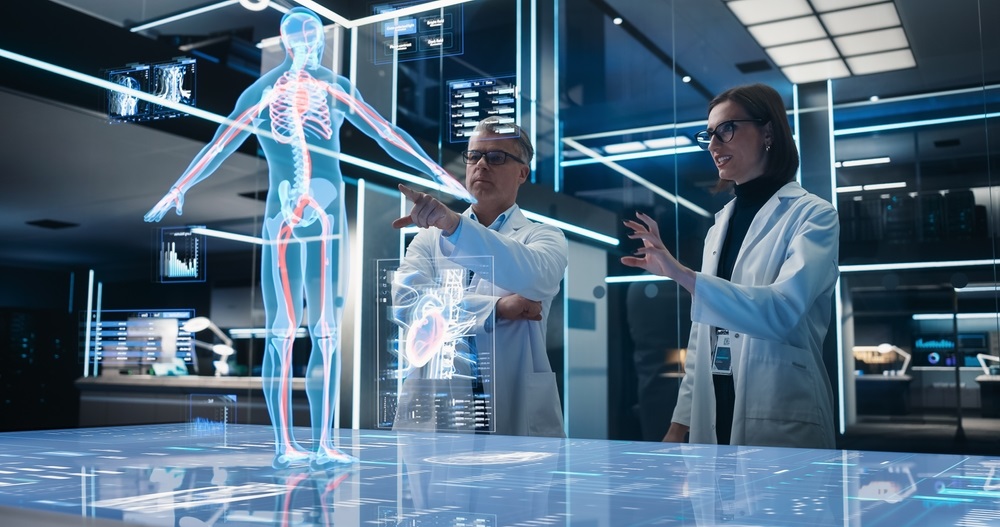
AR in Pharma offers highly engaging experiences that can be very satisfying for patients and Health Care Practitioners (HCPs). Offering them such a differentiated application to assess and understand health issues can help foster an emotional and personal connection.
By providing 3D visuals on body representations, both patients and HCPs work collaboratively toward a common goal.
AR-Powered Pharma Marketing Tools
Sales representatives and other medical industries can use AR VR technology in the pharmaceutical industry to demonstrate products, compositions, uses, and benefits to physicians and doctors.
This can be used as a practical method by allowing them sensory experience to understand the impacts of manipulating devices in the body to educate them on health conditions and diagnostics.
Alcon used AR technology to assist their sales force in selling Alcon LenSx Laser to cataract surgeons. The reps could showcase the product in actual dimensions without physically carrying it around. It gave the physicians an idea about the space to occupy and an understanding of the workings from all angles.
Enhanced Safety Protocols for the Pharma Industry
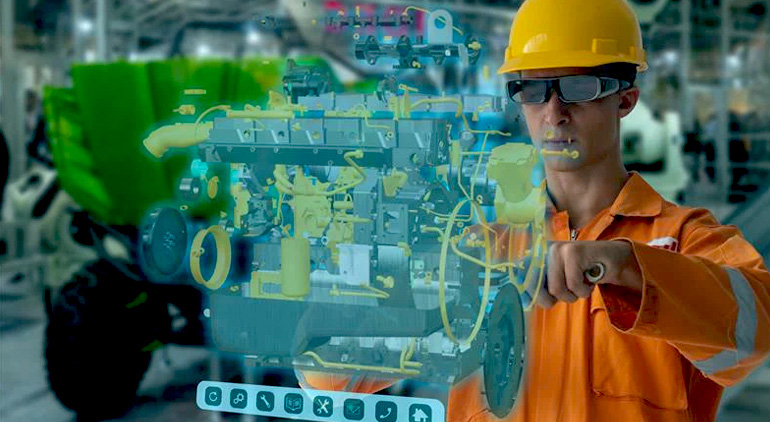
Augmented reality in pharma helps visualize complex molecules in 3D, improving drug discovery and development. It also enhances training, quality control, and manufacturing by reducing errors and ensuring accurate procedures.
Offering trainees and clinical researchers access to hands-on experiences in AR-simulated modules allows them to practice and learn in an augmented way and experience and manipulate real-life medical situations to study impacts in a safe and controlled environment.
Related post: Increasing Gas Plant Safety Through AR
AR Technology Increases Efficiency
Augmented reality pharma can help increase efficiency in day-to-day operations. With AR glasses, routine tasks like product search, pick up, and placement are made more accessible.
Unlock new opportunities for your pharma business with AR. Boost efficiency and revolutionize patient engagement. Start exploring now!
Contact UsAR and VR-backed user manuals also provide real-time instructions on technical and operating guidelines, which saves time and resources, reduces the chances of errors, and leads to increased efficiency.
Augmented Reality in Pharma Manufacturing
Augmented Reality (AR) in pharmaceutical manufacturing enhances efficiency and accuracy by overlaying digital information onto the physical environment. It assists in tasks like assembly, quality control, and maintenance by providing real-time guidance and visual instructions.
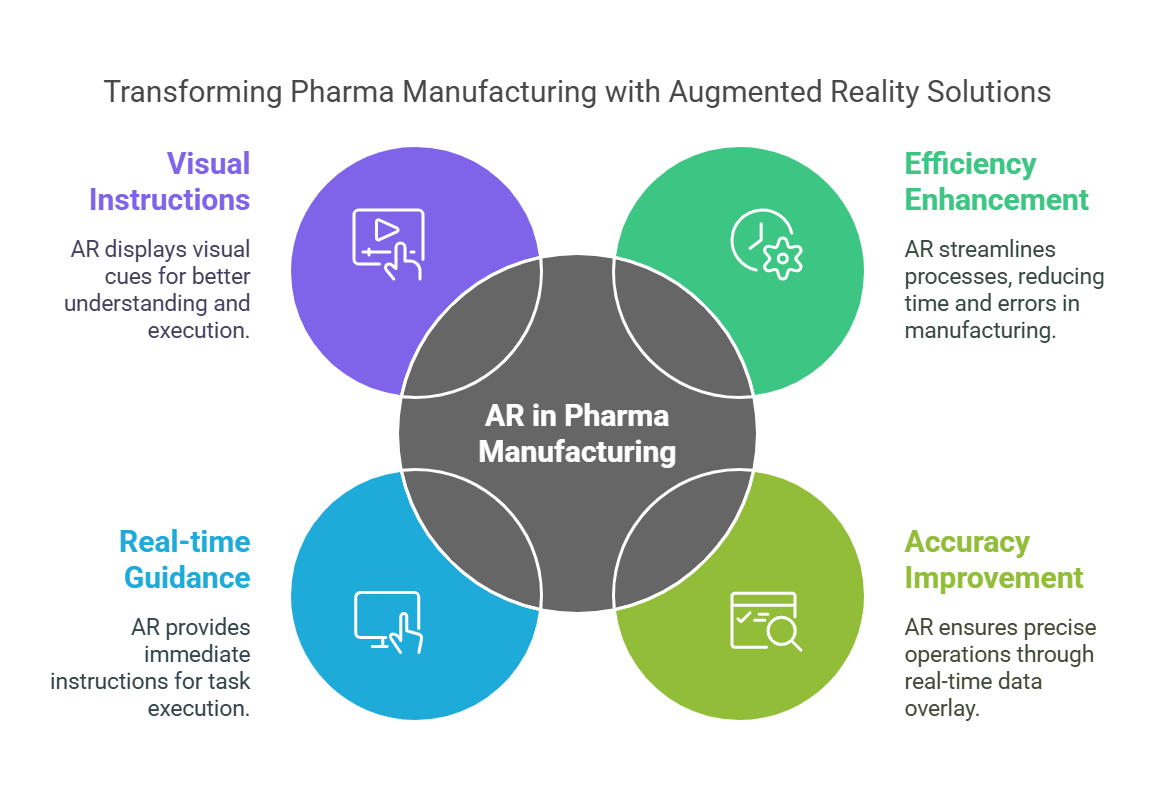
AR improves productivity, reduces errors, and ensures better compliance with regulatory standards.
Conclusion
In the Asia Pacific region, India is expected to lead with AR/VR in healthcare at a CAGR of 26.1% by 2027. AR technology in the pharma sector will become an indispensable application for the pharma sector and can reap massive benefits.
The potential of digital innovations in the pharma and healthcare sector is vast, limited only by the ingenuity and creativity of the developers.
KOMPANIONS is an industrial AR/VR solution provider that constantly strives to surpass the stakes by developing accurate and explicit tools that enable breakthroughs in treatment and diagnosis in the medical field.

